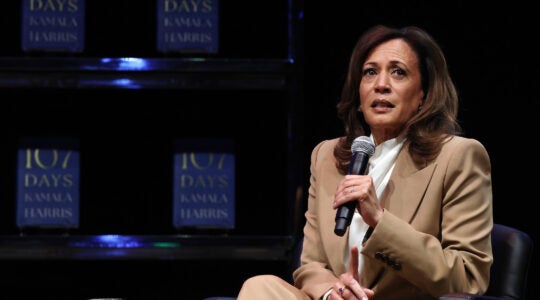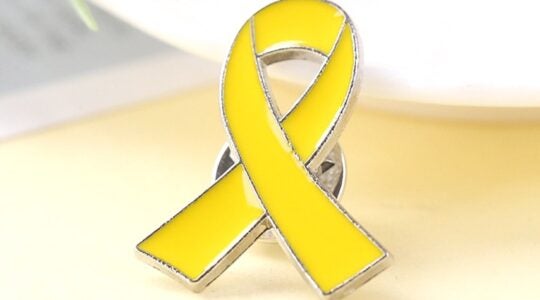(JTA) — A federal judge dismissed a lawsuit against the multinational food company Unilever tied to Ben and Jerry’s 2021 announcement that it would stop selling ice cream in what it called “Occupied Palestinian Territory.”
Unilever is the ice cream maker’s parent company. The lawsuit, which was thrown out on Tuesday, claimed Unilever misled American investors by not immediately sharing the news of the boycott with them.
The boycott, which sparked discussion across the Jewish world, is not in force: In December 2022, following a separate, lengthy legal battle, Ben & Jerry’s independent board reached a settlement with Unilever that ensured the ice cream would continue to be sold across Israel and the West Bank.
The suit that was dismissed Tuesday in a New York City federal courtroom was brought last year by a police and fire pension fund in St. Clair Shores, a suburb of Detroit. The plaintiffs sought damages from the company due to to a drop in Unilever stock price after the boycott announcement in July 2021.
“We believe it is inconsistent with our values for Ben & Jerry’s ice cream to be sold in the Occupied Palestinian Territory,” Ben & Jerry’s had said in a statement announcing the boycott. “We also hear and recognize the concerns shared with us by our fans and trusted partners.”
Following the announcement, multiple state pension funds divested their funds from Unilever or otherwise decreased their business with the company or with Ben & Jerry’s. The lawsuit sought damages for people whose shares in the company fell after those divestments, and after some Jewish and pro-Israel groups accused Ben & Jerry’s of antisemitism.
The plaintiffs alleged that Unilever should have alerted its shareholders that Ben & Jerry’s was set to make a decision that could cause a drop in the company’s value. But U.S. District Judge Lorna Schofield ruled that Unilever was not required to disclose the boycott when Ben & Jerry’s decided on it in July 2020, because Unilever retained operational control over whether to institute the boycott, which it did not do.
JTA has documented Jewish history in real-time for over a century. Keep our journalism strong by joining us in supporting independent, award-winning reporting.






